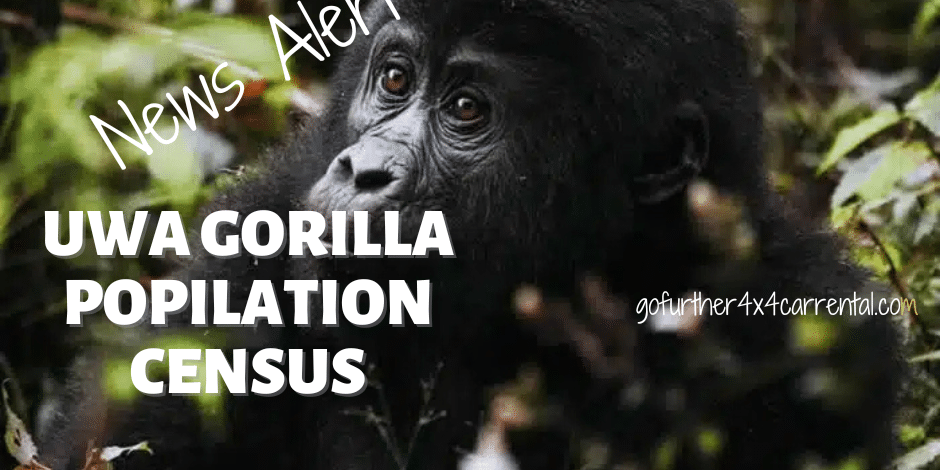Mountain gorillas are considered one of the most endangered creatures on the International Union for Conservative of Nature (IUCN) Red List of Threatened Species. There are not more than 1080 individuals left in the whole world and Uganda happens to be home to almost half of that population. Gorillas are only found in the great Virunga ranges that cover northern Rwanda, South western Uganda and Eastern DRC.
Like many endangered animals, the decline in gorilla numbers is mostly due to poaching, habitat loss, disease and human conflict. Gorillas are also slow to recover as they have a low reproductive rate, with females only giving birth every four to six years. One female will breed three or four times in her lifetime.
Once on the brink of extinction, mountain gorillas continue to grow in number.
The gorilla census exercise is supposed to take place every 5 years. The first census was carried out in 1997 and only 300 gorillas were recorded. The last one was carried out in 2018 and should have resumed in 2023 but due to the adverse effects of COVID-19, it was extended to 2025. The results of the last census show that the population of gorillas in Bwindi Impenetrable National Park had increased from 450 to 459 individuals from the last census. Including the mountain gorillas living in the Virunga mountain ranges of Rwanda and Congo, the overall total of mountain gorillas was 1,063 as of the 2018 census.
The Bwindi census in 2018 took place in two sweeps and was the result of a large collaborative effort among national park authorities from all three countries where mountain gorillas are found as well as conservation NGOs. Trackers, researchers, veterinarians and others divided into 12 teams, with six in the forest at a time. These teams further divided into three groups, each of which camped in different parts of the forest for two weeks at a time, walking along pre-planned routes each day to search for signs of gorillas, especially nest sites, and collecting fecal samples for DNA analysis that would provide clear gorilla identification.
This year’s census was officially launched on 6th February by the director of the Uganda Wildlife Authority (UWA), Dr James Musinguzi at the Institute of Tropical Forest Conservation (ITFC)in Ruhinja, Bwindi Impenetrable National Park..
A team of a team of 60 trained personnel was flagged off to carry out the census and 70 percent of these are from UWA. The census is coordinated by the Greater Virunga Transboundary Collaboration (GVTC) and has attracted several local and international conservation organisations from Uganda, Rwanda and DRC where the mountain gorillas live. The GVTC executive Director noted that the census will begin on the Ugandan side but will have to wait on the Rwanda and DRC side until March next year.
The UWA director revealed that although the main focus of this census is on the mountain gorillas, it will also include other mammals that inhabit the park, and also identify illegal activities carried out there. The first phase of the census will last until July and the second phase will start in September this year.
The exercise mainly involves counting the nests made by both habituated and non habituated gorillas. Groups of five people will sweep the forest at ago and aside from counting the nests, they will also consider the dung whose diameter can be used to tell the size of different gorilla individuals.
For each gorilla group, GPS coordinates are taken by the team carrying out the census. The census will also include study of genetics where paternity tests are carried out to determine the gorillas related to one another. On top of that, health checks on the habituated gorillas are to be carried out and treatment administered to the sick ones.
This census will help to determine the current populations of mountain gorillas and chimpanzees in the region, identify threats to their survival, and inform conservation strategies to protect these endangered great apes.
It was also revealed at the launch that of the census that more than 103 mountain gorilla births have been recorded in Bwindi since 2019, a positive sign for conservation efforts in the area.
We intend to keep you posted about the results after this exercise is concluded. Do not forget to take part in the life changing gorilla trekking experience in Bwindi Impenetrable National Park and trust GoFurther 4×4 Car Rentals for all your vehicle needs.







